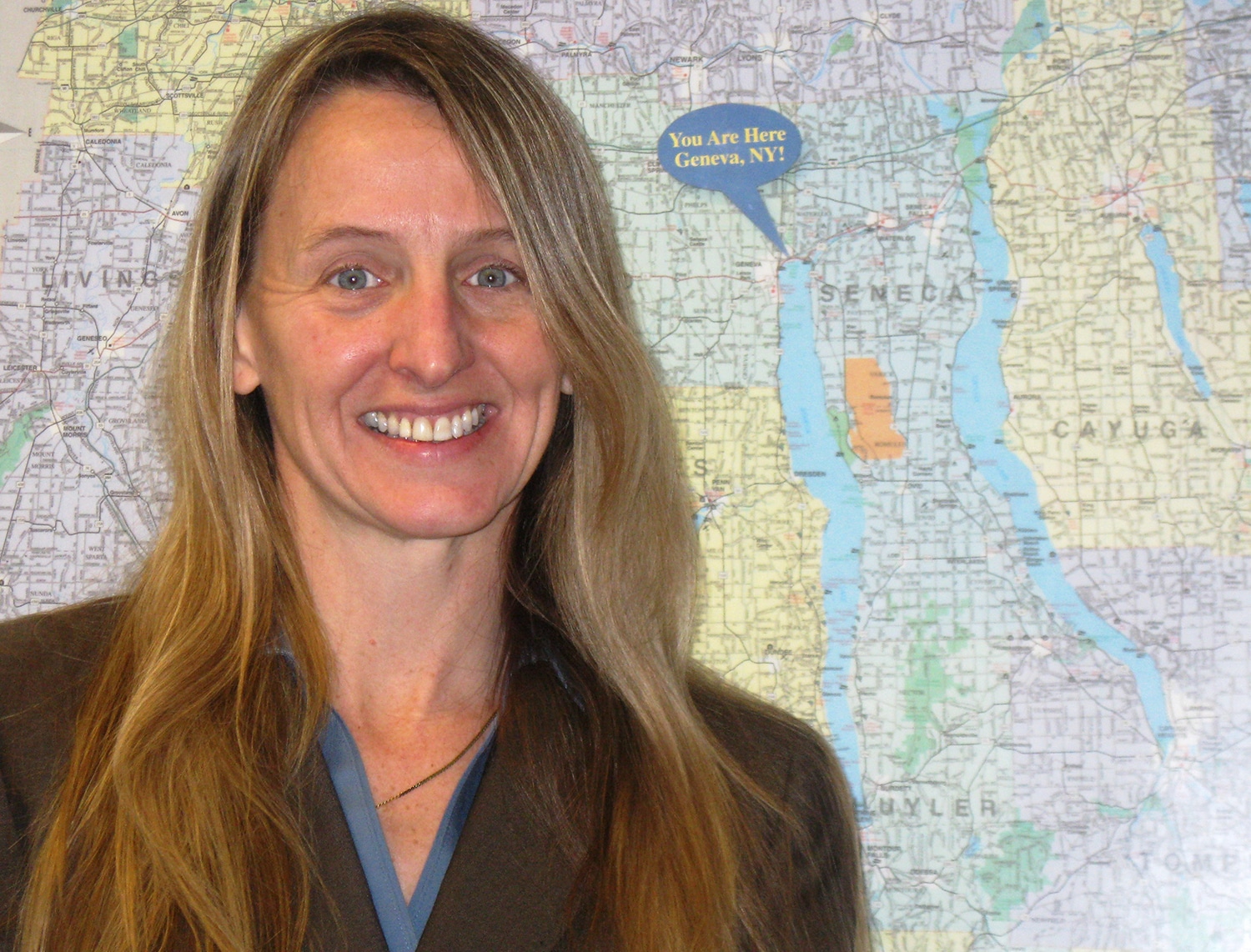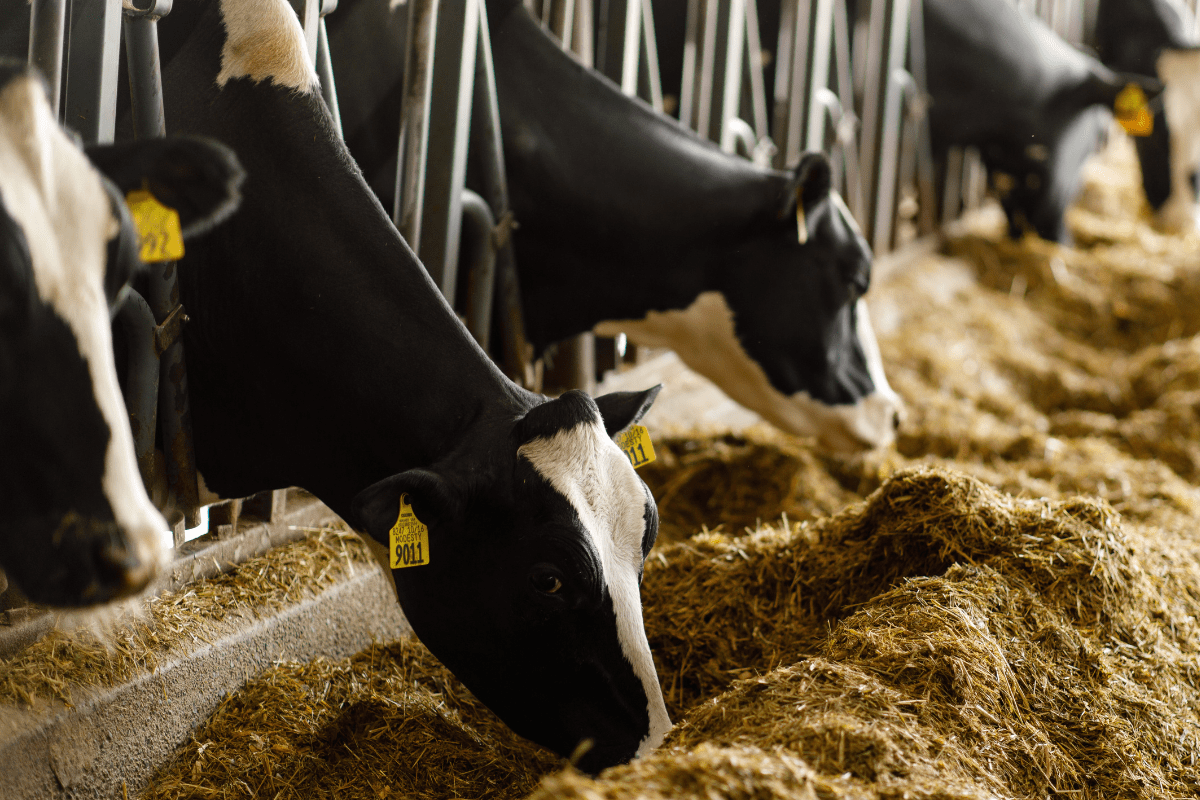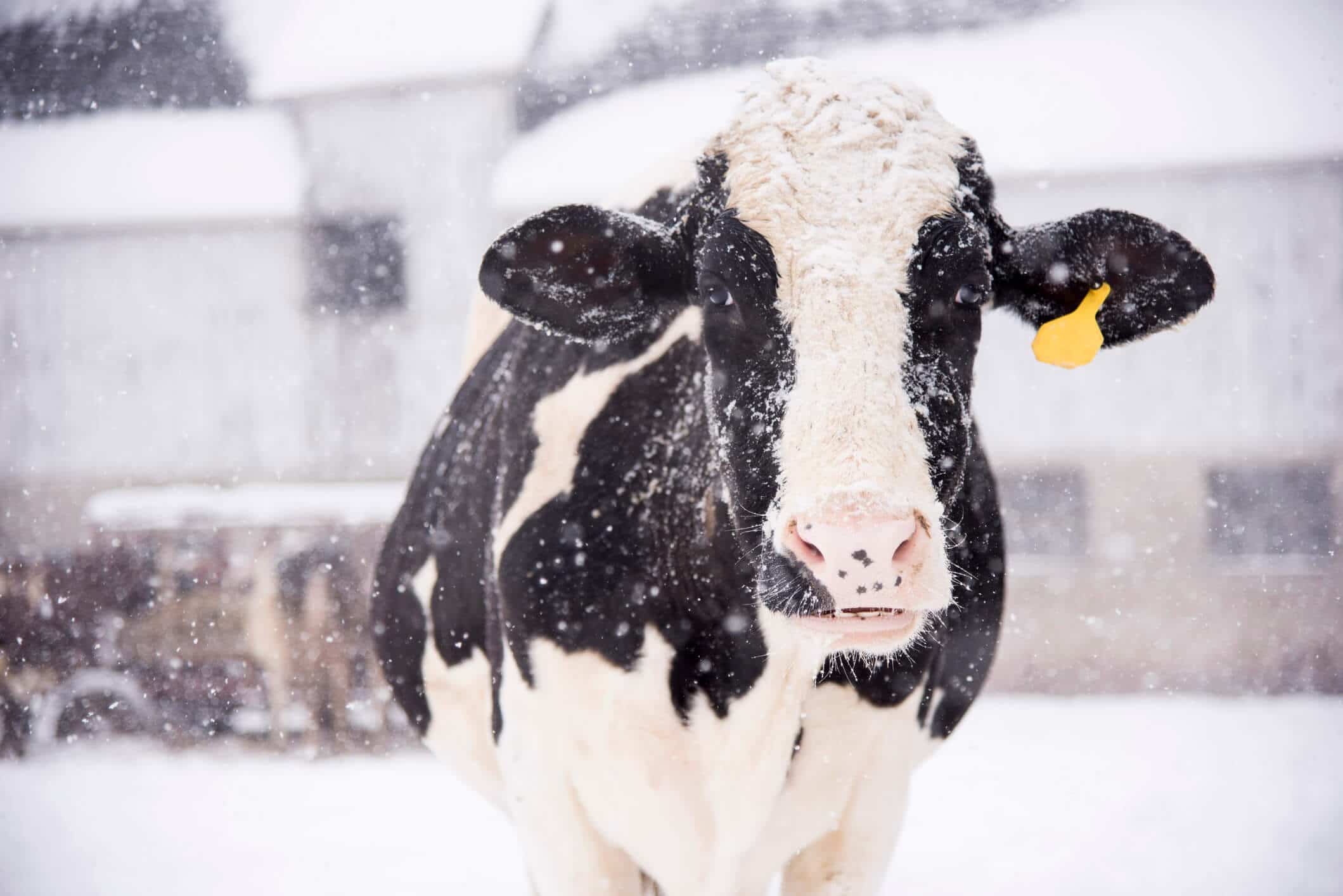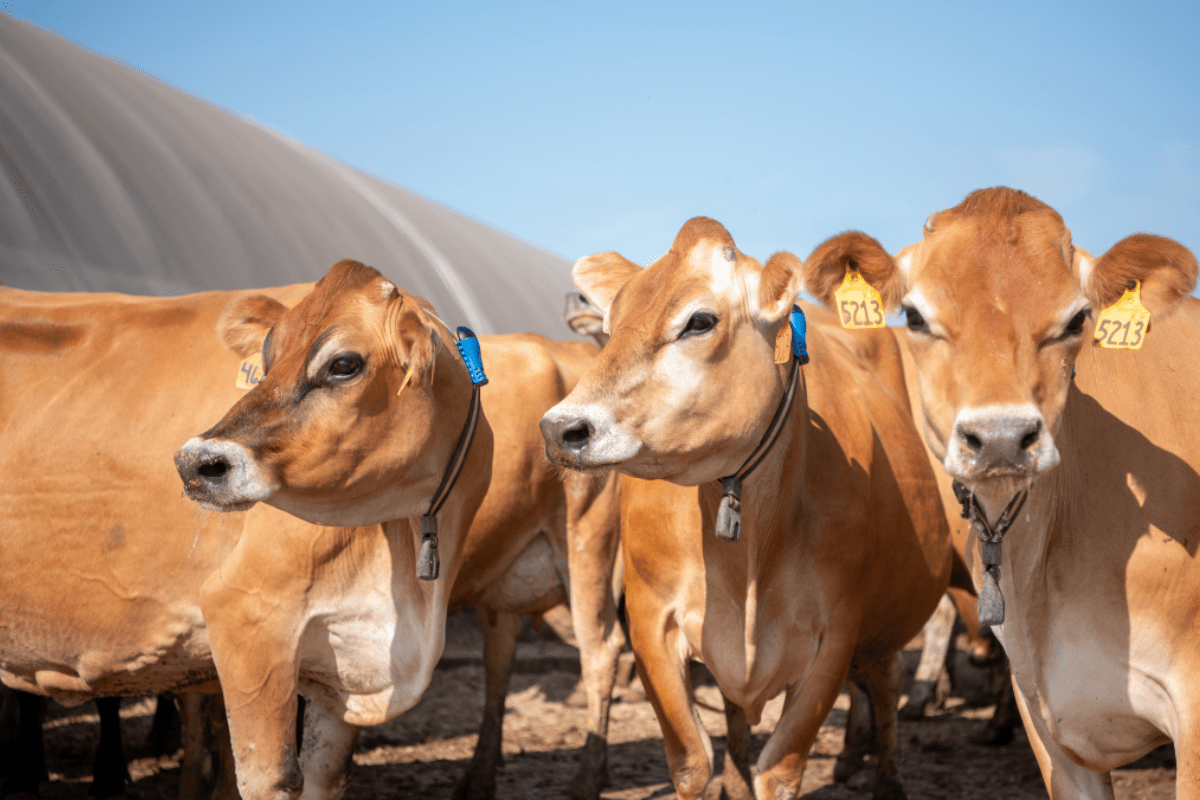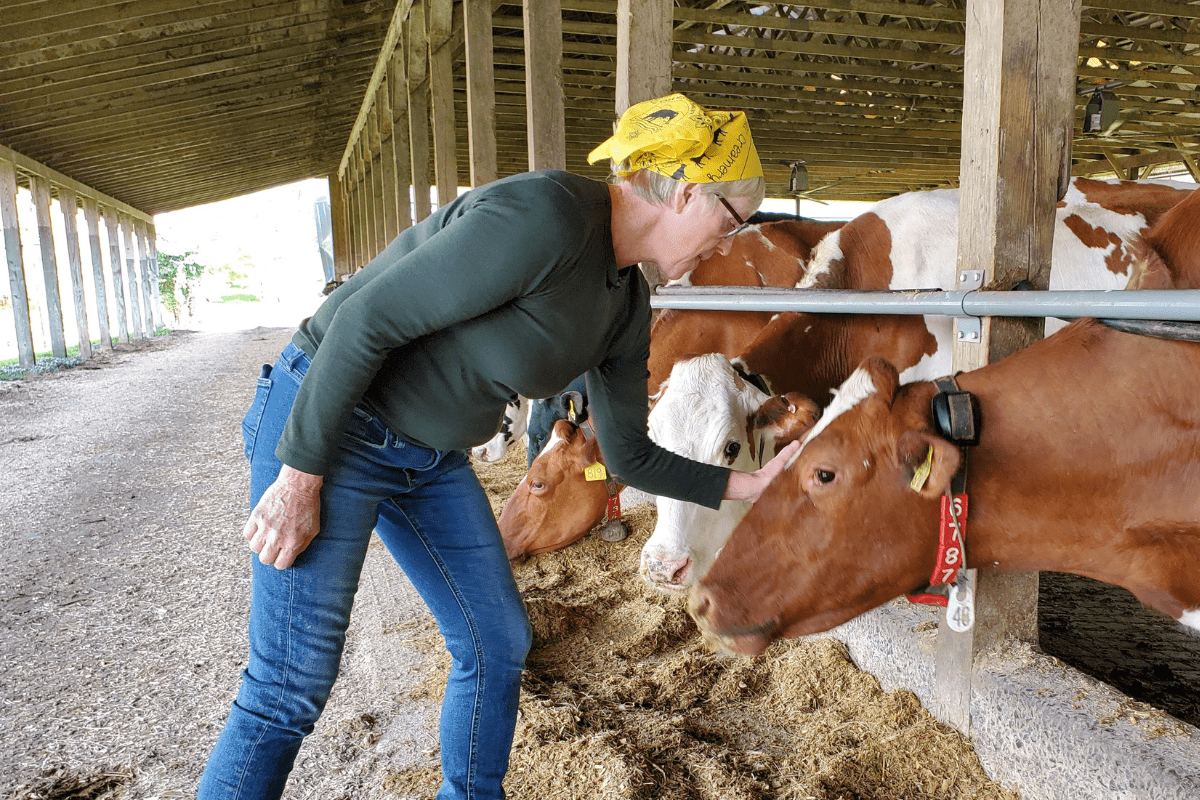Every day, he reaches for at least one glass of milk. It’s made on his parent’s farm, East Oxford Dairy, in Bainbridge, New York, where Jonathan Castle grew up. Helping on the farm, Jon says, gave him a sense of pride and responsibility in his work — on the farm, at school, and on the football field.
Jon has played football since the fifth grade. This year, the Bainbridge-Guilford High School senior received the New York State Class D Scholar-Athlete of the Year award. In this Q & A with Jon, he tells us how working on the farm had influenced his game.
Jon Castle was presented the New York State Class D Scholar-Athlete of the Year award by New York State Public High School Athletic Association executive committee member Tom Heinzelmann (left) and NYS High School Football Coaches Association President Nick Fitzgerald.
Q: How has working on a farm prepared you for playing football?
A: It taught me the value of working hard. When you’re working on a farm, people (and cows!) depend on you to do your job right.
“On a farm, you may not always like your job, it may not be easy, and you may be exhausted, but you still must do your part because other people are depending on you. It’s the same on a football field.”
On the football field, success is only achievable if all 11 guys do their job. On the farm, we all pitch in — even my grandparents — to get everything done.
Q: What is it about growing up on a farm that gave you a strong work ethic?
A: There are many things that must be done on a farm and we only have so much time to do them. I was taught that you do a job right the first time, partly because there is always something else that also needs to be done. Also, because my grandparents help on the farm and there’s no reason for me not to work hard and get my jobs done if my grandparents are doing the same.
Q: What’s a typical day like on the farm?
A: A normal day on the farm starts around 6:30 in the morning. We get up and go to the barn to clean off the cows’ beds. In the summer months, when the cows are out in the pasture, we need to bring them back to their stalls. Cows like routine. We have approximately 40 cows, and they need to be milked twice a day and get fed on schedule. There are various other chores too, from cleaning out mangers to re-bedding the stalls and throwing square bales of hay mow for that night’s feeding to fixing fences. Milking and feeding the cows is normally finished around 8, bringing us to the end of a typical day on the farm.
Q: What are some farm chores that you feel helped you become physically or mentally better at football?
A: One of them is doing hay every summer. Anyone who has worked on a farm will admit that doing square bales can be a long and tiring job. It’s typically hot and humid, and we always seem to be trying to get it done before the next rainstorm. I pushed myself through to get it done. It taught me both physical and mental endurance.
Another is bringing the cows back from the pasture. It may be raining or 90-degrees and humid, and I may have to walk a mile or more, but I still have to bring the cows back. Bringing cows back taught me a valuable lesson for football, about angles. You cannot go directly at a cow to herd it in any certain direction, you have to take an angle. This has been very important in football because you cannot go where your opponent is, but where they are going to be.
Q: What is it about the linebacker and offensive guard that you like playing those positions best?
A: I loved being able to do what the team needed me to do while staying out of the spotlight. Like working on the farm, these positions do not typically draw much attention and still allowed me to be a vital part of the team. They’re not the flashiest positions but, like the seemingly menial tasks on the farm, someone needs to do them. The behind-the-scenes roles on a farm are quite similar to playing linebacker and guard. These positions do not attract much attention, unless you are not doing your job. I prefer to let my effort speak for itself.
What Lies Ahead?
After graduation, Jon is going to Rensselaer Polytechnic Institute in Troy, New York, to study environmental engineering. His ambition is to eliminate the stigma surrounding engineers and how they work with farmers by bringing about more discussion between the two professions.
“I would like to tie in dairy farming into environmental engineering if I can, and make farmer’s lives easier, while having meaningful discussions about the methods in which we will find solutions to issues concerning the environment.”

